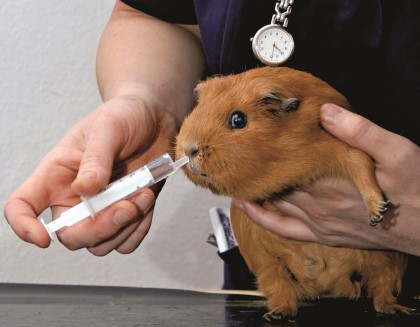
Companion Animals
Tips and advice
There are so many ways in which animals are good for us, but how can we be good to them?
- Keep them healthy
- Keep them well-nourished
- Keep them fit
- Keep them safe
- Keep reproduction under control
Keeping our pets healthy and active keeps us healthy and active too so we can live long and happy lives together. Below are some links to tips and advice on caring for your pet.
Vaccination
Vaccinations during the puppy/kitten stage are the best protection against serious infections. New-borns are protected against serious pathogens during the first few weeks via antibodies received from their mother but the effectiveness of these antibodies diminishes rapidly after the birth. Appropriate vaccinations will enable puppies and kittens to build up their own immune system.
The first vaccination dates are usually scheduled for the 8th week after birth. Depending on which disease the animal should be protected against, booster vaccinations are required a few weeks later. Once the required immune protection has been established, regular repeat vaccinations are sufficient to protect the dog or the cat throughout its entire life. The overall vaccination schedule will be determined by the veterinarian.
Vaccinations can also be important for the health of pet owners. For instance, persistent and systematic vaccination of wild and domestic animals has assured that rabies no longer plays a role in a large number of European countries. Rabies vaccination remains absolutely essential however because animals that have not been properly immunised against rabies (and so can carry the viru) are sometimes brought into the European Union. Consequently these animals represent a dangerous source of infection. European Union travel regulations require rabies vaccination for dogs.
Vaccinations also provide protection for dogs against parvovirus, kennel cough, hepatitis, leptospirosis and distemper. Puppies are particularly prone to these diseases and, should they occur, it is difficult, even sometimes impossible to treat them. When it is possible to treat these disease it is only with powerful antibiotics. The parvovirus harms the stomach and digestive tract of infected animals. Various parvo-pathogens can cause the death of a dog within a few hours. The most dreaded form of distemper is the so-called nervous canine distemper. This infection leads to severe, cramp-like locomotory disorders and also to paralysis. Often the affected dog has to be put to sleep. Hepatitis is another infection usually ending in death. Leptospirosis is not quite as serious as the previous-mentioned diseases, however, various forms of Leptospirosis can be transferred to people.
So, visit the vet regularly to ensure the necessary vaccinations for your pet.
